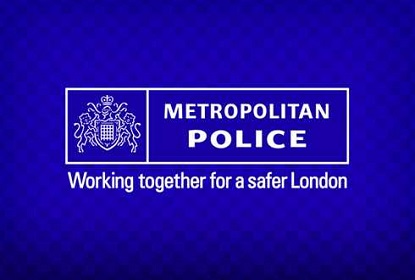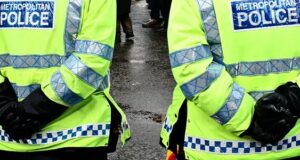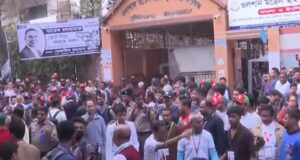THE METROPOLITAN POLICE are taking a new model of organisation – piloted in East London – and rolling it out across the capital. No more will each borough have its own police force, as new Basic Command Units (BCUs) will group boroughs together into a single operational unit.
The Metropolitan Police currently have a command unit for each of London’s 32 boroughs. These units will be merged with neighbouring ones to form just 12 larger BCUs.
The Met argues that London’s boroughs are different sizes and each has its own problems and needs – and resources. This has grown a culture and practice in which the different forces do things differently, which makes it harder for one borough to help out a neighbour when a special challenge comes along.
The reorganisation is clearly driven by the reduction in government funding. The Met has had to cope with increasing demand despite having had £325 million taken away from its budget by 2021/22 – a cut which has been met in part by reducing he number of officers to 30,000.
The Met is stressing that the new structures will give them greater flexibility and cut management costs. Councils will probably feel that the new structure will make it harder to organise joint operations with the police and harder to hold the force to account. The public will probably feel that the police are getting more remote – even though that’s not the Met’s intention.
BCUs
These new command units will be responsible for neighbourhood policing, emergency responses in their areas, CID work and safeguarding. They will be led by a chief superintendent who will assume the role of BCU Commander. Police officers will work across borough boundaries within the BCU area.
It is hard to see how officers will be able to build up expertise in local areas if redeployment is as “flexible” as the Met seems to be hoping for. It is also fairly clear that the Met will be hoping to dispose of some buildings. The public will have to pay for that, by having to travel further if and when they need to see the police.
Neighbourhoods
Increasing community confidence in the police is a priority for the Met. It has placed two Dedicated Ward Officers (DWO) and one Police Community Support Office (PCSO) in each ward in London. These officers work with local people on local priorities and they cannot be drawn away to help with major policing jobs elsewhere in London. (This is roughly half the number of police who used to be allotted to each ward before Austerity kicked in.)
The met intends to channel more officers into working with young people, including in school and care home settings. It will have one team to deal with Anti-Social Behaviour (ASB) and licensing issues, and that team will work with Councils and some other agencies. This is one area where Councils will very probably feel that they are not getting as easy a ride as they did when there was a Borough force to work with.
Safeguarding
The Met will be making its work on safeguarding vulnerable people a priority by investing more resources on preventing and investigating domestic violence, child abuse and sexual offences. It will do this by introducing “multi-agency hubs”, where it hopes that officers from other relevant organisations will work together with the police on these issues.
Bringing relevant agencies together may well result in a better service – though it is hard to see how these agencies, so many of which are in the public sector and facing austerity-driven cuts, will be able to fund the staff and the overheads to establish meaningful joint working in the new hubs.
BCUs will also make a priority of dealing with people with mental health issues and preventing them harming themselves or others; dealing with missing people; and managing offenders. The BCU should be able to bring specialist officers into investigations of serious crimes at an early stage, making things more streamlined for victims.
Emergency Response and CID
The numbers of phone calls the public make to 999 and 101 is on the up. The Metropolitan Police believes that the BCU structure will help to get officers to emergency situations more quickly. This is a little hard to swallow. Yes, if you have one borough which has lots of 999 calls next to a couple of others which have fewer emergency calls, you may get a better service by allowing underworked officers in some boroughs to attend emergencies in other boroughs. But surely the situation is that no borough has enough officers to deal with the number of emergencies in its boundaries? Is merger really going to get a significant number of police on the streets on a Friday and Saturday night?
Police in BCUs will also continue to try to get more work done over the phone or online rather than face to face, in order to save officer time.
The BCU model was tested during 2017 in Barking & Dagenham, Redbridge and Havering – and also in Camden and Islington. Police believe the experiment went well and justified them rolling the new structures out across London, which will be done in stages across London.
As well as the BCU of Barking & Dagenham, Redbridge and Havering, there will be a BCU of Hackney and Tower Hamlets, and a second one of Newham and Waltham Forest. This highlights one of the problems with the new system. Many public services are delivered on a borough basis, but some services are delivered by boroughs being grouped together. There is no fixed system for these groups. So an East London Council can work with a single borough to its north on one service, and with two to the east on another, and with yet another grouping on other issues.
This grouping together in the name of austerity-driven efficiency causes councils more work as they relate to different units all the time without being able to develop a common working practice. It also makes you wonder when some bright spark is going to say given all this joint working, why do we bother with the individual London Boroughs at all? Whey don’t we leave them as ceremonial names and just deliver everything through efficient, lean and streamlined sectors – North East, North West, South East and South West London? Such a move would take services a significant step further from the people.
Leading the work is Deputy Assistant Commissioner Mark Simmons. He said, “Local policing is at the heart of what the Met does every day, and we will improve it further by offering a service that is more personal and responsive to the needs of Londoners. BCUs will allow us to put first victims of crime and those people who need us the most. Our new structure will also give us the resilience and consistency we need across the whole of London, so we can continue to respond to large scale incidents and meet the financial and operational challenges we are facing.”
Let’s hope he’s right.
•Read more about it:
Police devote a week to tackling knife crime
Council continues crack down on drugs
[Adverts]
 East London News A Force for the community…
East London News A Force for the community…




